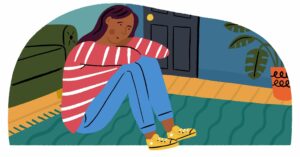How Sugar Affects Your Child’s ADHD
The relationship between sugar consumption and ADHD has long been a topic of discussion. There is no evidence to support that too much sugar causes ADHD. But studies do suggest consumption of sugar can worsen ADHD symptoms like hyperactivity, impulsivity and inattentiveness.
As Halloween and winter holidays approach, sugary treats will become more plentiful. Understanding how sugar impacts the body can help parents of children with ADHD make decisions about how just how much sugar is too much.
Americans Consume Too Much Added Sugar
The sugar that’s added to foods and beverages during processing or preparation differs from the naturally occurring sugars found in fruit or milk. Added sugar can be found on ingredient lists under a variety of names, says the Centers for Disease Control and Prevention, or CDC. Those names include brown sugar, cane juice, corn syrup, dextrose, fructose, fruit nectars, glucose, high-fructose corn syrup, honey, lactose, malt syrup, maltose, maple syrup, molasses, raw sugar and sucrose.
The Dietary Guidelines for Americans 2020-2025 recommends that kids ages 2 to 18 limit sugar intake to 24 grams (about six teaspoons) per day. Children younger than 2 years should not be fed any foods or beverages with added sugars.
But American kids (and adults, too, for that matter) are eating and drinking too much sugar, according to the CDC. Added sugars are found in obvious foods — juice, soda, desserts, snacks — as well as in healthier fare like yogurt, cereal, breakfast bars and sandwiches. Nearly a quarter of our added sugar intake comes from sweetened beverages. About 9% comes from candy — a share that is sure to skyrocket during Halloween.
Among those who celebrate Halloween, 96% purchase candy, according to CandyStore.com, and their favorite candies are high in sugar. The most popular trick-or-treat candies in 2021 — Reese’s Peanut Butter Cups, Skittles, M&Ms, Starburst, and Hot Tamales — contain between 16 and 22 grams of sugar per serving, says CandyCalories.com. A child can hit the daily max with just eight pieces of Starburst candies. And most parents know that limiting kids to one serving of trick-or-treat candy is not an easy thing to enforce.
Sugar Impacts ADHD Symptoms
As we mentioned above, sugar does not cause ADHD. But a diet that’s high in sugar does appear to increase certain symptoms of ADHD, such as hyperactivity, impulsivity and lack of focus.
The sugar that’s added to foods and beverages causes blood sugar levels to spike immediately after consumption, according to registered dietitian Wendy Lord. The body burns this simple carbohydrate to release energy for physical activity.
“For some, this can manifest in hyperactivity, one of the symptoms of ADHD,” Lord says. “Shortly after these spikes, blood sugar drops sharply, which leads to a lack of energy, poor concentration and mood swings, which might be very noticeable in some people with ADHD.”
Excess sugar can also lead to extreme tiredness and fatigue. “When a person consumes a lot of sugar at once, there is an immediate feeling of fullness and energy,” says registered dietitian Juliana Tamayo. “But the body uses the available glucose very quickly, which might lead to a feeling of fatigue very soon after.”
And while most bodies respond to sugar similarly, individual reactions do vary, Tamayo adds.
“Certain individuals do well with sugar in the diet, while others might find it triggering,” she says. “With ADHD, there is always the risk for sugar to cause a temporary lack of attention.”
And there is another potential problem caused by sugar. In some cases, the addictive tendency found in ADHD sufferers can lead to impulsivity and overeating, which causes some children to eat too much sugar every day or all at once, according to Tamayo. This tendency can prove to be particularly problematic for Halloween trick or treating, when candy and other snacks are so plentiful.
What Can Parents Do?
“The best way to prevent sugar from worsening ADHD symptoms is to limit the amount of sugar someone has at once,” Tamayo says. “One or two pieces of candy at once is the recommended amount during special occasions like Halloween.”
When it comes to managing ADHD symptoms, a child’s overall diet quality will have a bigger impact than indulging in a few sugary treats at Halloween, according to registered dietician nutritionist Sarah Chatfield.
“Although carbohydrates like sugar are an essential and easily available source of energy, people with ADHD are advised to follow a diet consisting primarily of protein and healthy fats,” Lord said. Chatfield adds that making sure children eat a healthy, high-protein meal and drink plenty of water before going trick or treating can help curb their sugar intake and prevent overeating.
Nevertheless, a big candy haul can linger on and add up to a lot of extra sugar during the days and weeks following the holiday. Chatfield suggests swapping less-preferred candy for another treat, such as a fun outing or a meal at a favorite restaurant. Local businesses, like dentists, may offer candy trade-ins, buybacks or donation opportunities to help families unload their children’s excess candy.
Sources:
CDC: Know Your Limit for Added Sugars
Dietary Guidelines for Americans 2020 – 2025
CDC: Get the Facts — Added Sugars
CandyStore.com: Most Popular Halloween Candy by State
Today.com: 5 sweet ways to donate unwanted Halloween candy to a good cause
Sign up to receive a monthly review of our top articles about ADHD.
Share this post with your friends

The Connection between ADHD and Loneliness
Discover how ADHD can contribute to loneliness and find expert tips to overcome it. Learn coping strategies, improve social skills, and build meaningful connections.




